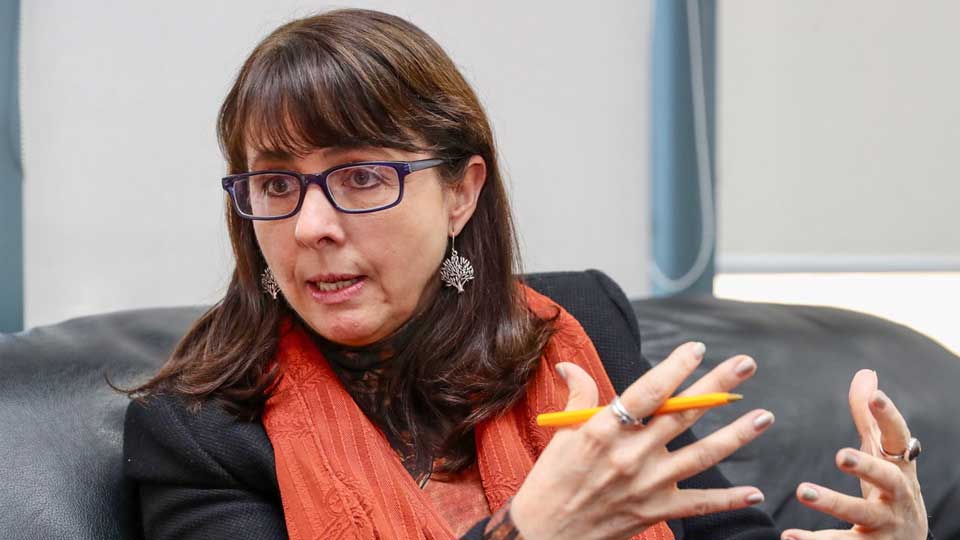Relations between Mexico’s scientific community and the government of Andrés Manuel López Obrador, a left-wing populist, have never been warm. But the debate over a new bill governing Mexican science and technology has brought the acrimony to a boiling point. The government says the new law, which may soon be sent to Mexico’s parliament for a vote, would improve science and technology policymaking and help guarantee sufficient funding and support for research. But a draft presented in December 2020 by María Elena Álvarez-Buylla Roces, head of the National Council of Science and Technology (Conacyt), has met with a barrage of criticism from scientists. They say it would increase Conacyt’s power, deprive the scientific community of a say in future science policy, and limit academic freedom.
Mexican researchers hope the bill can still be amended. But Conacyt, a funding agency that acts as a science ministry of sorts, is no longer speaking with the bill’s critics, they say. “They have canceled all communication channels with us,” says Maria Brenda Valderrama Blanco, a biotechnology researcher at the National Autonomous University of Mexico (UNAM), Cuernavaca, and one of the founding members of Pro- CienciaMX, a network of scientists seeking to influence science policy. Conacyt and Álvarez-Buylla Roces did not respond to questions from Science.
López Obrador has made several disparaging comments about scientists since he came to power in 2018, describing them as elitists and suggesting they are corrupt. His science policy has been marked by a series of dustups. Conacyt has suspended many scholarships for master’s, Ph.D., and postdoc students in Mexico and abroad, for example, creating widespread discontent.
In September 2020, Conacyt removed biotechnology as one of the nine categories in new bylaws of the National System of Researchers (SNI), a mechanism to identify and fund the most important researchers. Some saw the move as an attempt by Álvarez-Buylla Roces, a plant scientist and vocal critic of genetically modified organisms, to control biotechnology research and deprive it of resources. “They removed biotechnology just because she doesn’t like it,” says María de la Luz Jimena de Teresa, a mathematician at UNAM, University City. But Conacyt says biotechnology researchers can seek SNI recognition through other disciplines.
Scientists were also upset at Álvarez-Buylla Roces’s October 2020 decision to no longer cover Mexico’s annual fees to international scientific groups, including the International Mathematical Union and the International Union of Pure and Applied Physics. The government says the cut was necessary to save money and help cope with the COVID-19 pandemic, but researchers say it will isolate Mexican scientists and deprive them of opportunities. Also in October, the government decided to terminate 109 trust funds run by public research centers and government institutes, one-third of them devoted to science and technology, and use the money for the pandemic response. Álvarez-Buylla Roces, who supported that decision, “is not doing her part in communicating the needs of Mexican science to our president,” Jimena de Teresa says.
A previous science reform bill, proposed by a senator from López Obrador’s political party in 2019, died after protests from scientists. In its wake, Conacyt invited input from the research community in March 2020. Many scientific organizations and universities sent in ideas for the bill; ProCienciaMX argued it should dedicate at least 2% of the federal budget to science and technology, set up a transparent allocation system in which scientists can play a role, and ensure academic freedom. “In theory, this new law could give us a clarity and strength that we don’t have at the moment,” Valderrama Blanco says.
But after reading Álvarez-Buylla Roces’s draft in December, scientists said she had ignored their comments. The bill prioritizes research that addresses national problems “according to the state agenda,” a phrase scientists say invites political interference. It also centralizes decisions about science in one council in Mexico City at the expense of the states, and provides few opportunities for scientists to participate in policymaking. Meanwhile, the bill makes no concrete promises about the future science budget. “This is serious,” Valderrama Blanco says. “We’re not paranoid.”
In an opinion piece in La Jornada, Álvarez-Buylla Roces defended the proposal and said the opinions of the scientific community, including ProCienciaMX, had been taken on board. “This is a lie,” the organization tweeted in response. “None of our proposals are reflected in the draft presented by Conacyt.”
The draft has already been approved by the General Council for Scientific Research, Technological Development, and Innovation, chaired by López Obrador himself, and may soon head to parliament, where his party has a majority. Scientists hope it’s not too late to come up with a new proposal. “We ask [the parliament] not to unilaterally approve a law where the feeling of the scientific community is not heard,” says ProCienciaMX member Alma Maldonado-Maldonado, an education scientist who specializes in public policy. But Valderrama Blanco isn’t hopeful. “I think they are going to surprise us with a document introduced through the back door that will be approved by the majority,” she says.
Fuente: Science

